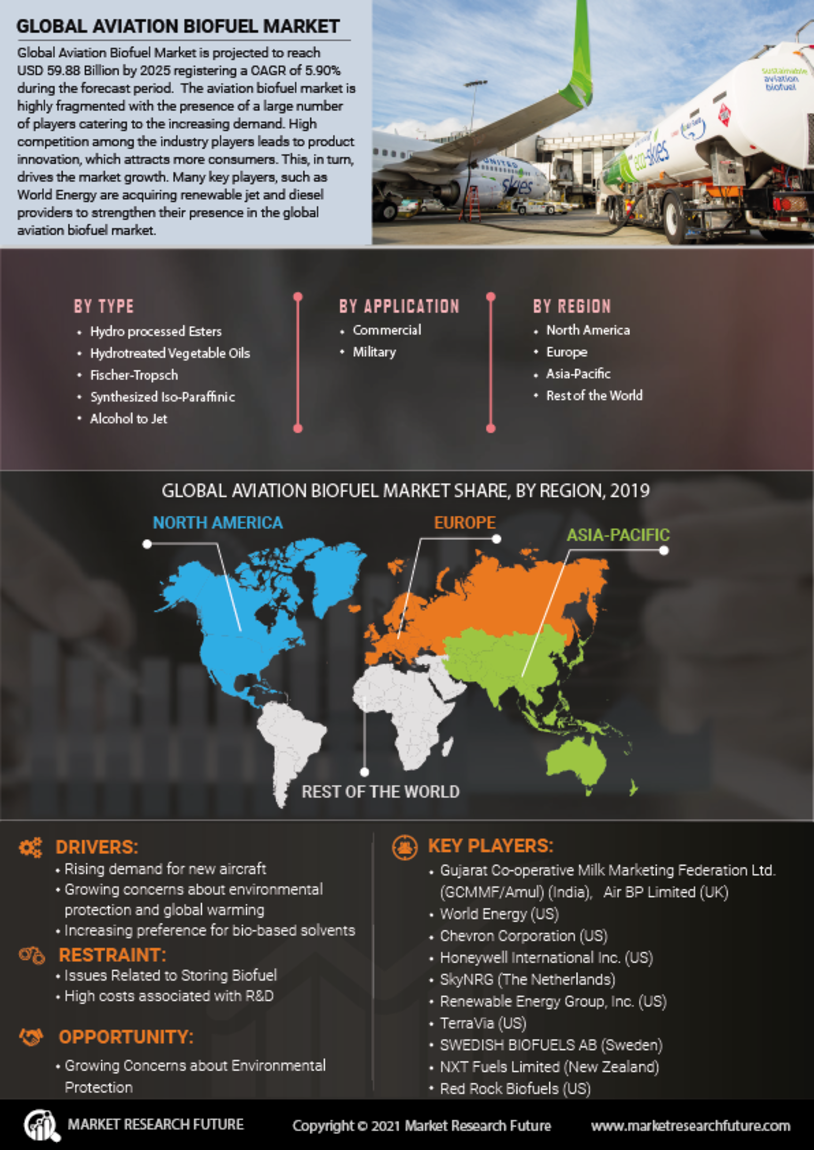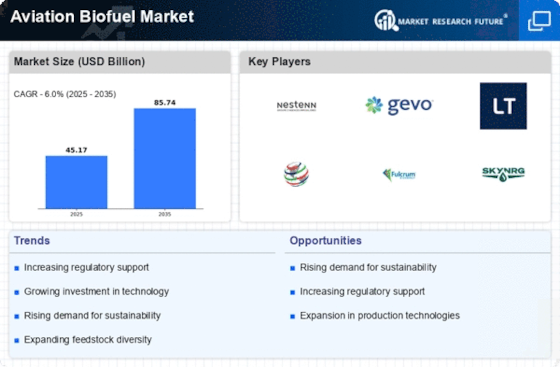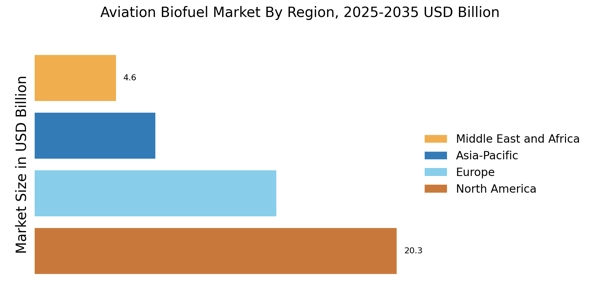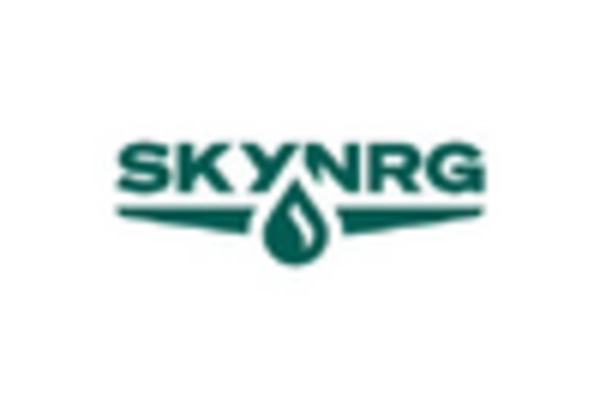Rising Environmental Concerns
The aviation biofuel Market is experiencing a surge in demand driven by increasing environmental concerns. As climate change becomes a pressing issue, stakeholders in the aviation sector are under pressure to reduce greenhouse gas emissions. Biofuels, derived from renewable resources, offer a viable alternative to traditional fossil fuels, potentially reducing carbon emissions by up to 80%. This shift is not merely a trend; it reflects a broader commitment to sustainability. Airlines are increasingly adopting biofuels to meet corporate social responsibility goals and comply with stringent environmental regulations. The International Air Transport Association has set ambitious targets for carbon neutrality by 2050, further propelling the Aviation Biofuel Market forward. As consumers become more environmentally conscious, the demand for sustainable aviation fuels is likely to grow, indicating a long-term shift in industry practices.
Government Policies and Incentives
Government policies and incentives are crucial drivers of the Aviation Biofuel Market. Many countries are implementing supportive frameworks to encourage the adoption of biofuels in aviation. These policies often include tax credits, subsidies, and mandates for blending biofuels with conventional jet fuels. For example, the Renewable Fuel Standard in the United States has established ambitious targets for biofuel production, which directly impacts the aviation sector. Additionally, the European Union's Green Deal aims to promote sustainable aviation fuels, potentially increasing the market share of biofuels in the aviation industry. As governments worldwide recognize the importance of reducing carbon emissions, the Aviation Biofuel Market is likely to benefit from enhanced regulatory support. This alignment of policy and market dynamics could lead to accelerated growth and investment in biofuel technologies.
Technological Innovations in Biofuel Production
Technological advancements are playing a pivotal role in shaping the Aviation Biofuel Market. Innovations in production processes, such as the development of advanced fermentation techniques and the use of waste feedstocks, are enhancing the efficiency and cost-effectiveness of biofuel production. For instance, the introduction of second and third-generation biofuels, which utilize non-food biomass, is expanding the feedstock base and reducing competition with food supplies. According to recent data, the production capacity of aviation biofuels is projected to reach 10 billion liters by 2030, driven by these technological improvements. Furthermore, research into synthetic fuels and algae-based biofuels is gaining traction, suggesting that the industry may witness a diversification of fuel sources. These technological innovations not only promise to lower production costs but also enhance the overall sustainability of the Aviation Biofuel Market.
Collaborative Efforts Across the Aviation Sector
Collaboration among stakeholders in the aviation sector is emerging as a key driver for the Aviation Biofuel Market. Partnerships between airlines, fuel producers, and research institutions are facilitating the development and commercialization of biofuels. These collaborative efforts are essential for overcoming the technical and economic challenges associated with biofuel production and distribution. For example, joint ventures between airlines and biofuel producers are enabling the establishment of supply chains that ensure the availability of sustainable fuels. Additionally, industry consortia are working together to share knowledge and resources, accelerating the pace of innovation. As these collaborative initiatives gain momentum, they are likely to enhance the overall viability of the Aviation Biofuel Market, making it more attractive for investors and stakeholders alike.
Increasing Airline Commitments to Sustainability
The Aviation Biofuel Market is witnessing a notable shift as airlines commit to sustainability initiatives. Major airlines are pledging to reduce their carbon footprints and are increasingly investing in biofuels as part of their strategies. For instance, several airlines have announced ambitious targets to achieve net-zero emissions by 2050, with biofuels playing a critical role in these plans. The commitment from airlines not only reflects a response to consumer demand for greener travel options but also aligns with broader industry goals for sustainability. According to industry reports, airlines are expected to purchase over 5 billion gallons of sustainable aviation fuel by 2030, indicating a robust market potential. This growing commitment from airlines is likely to drive investments in the Aviation Biofuel Market, fostering innovation and expanding production capabilities.

















